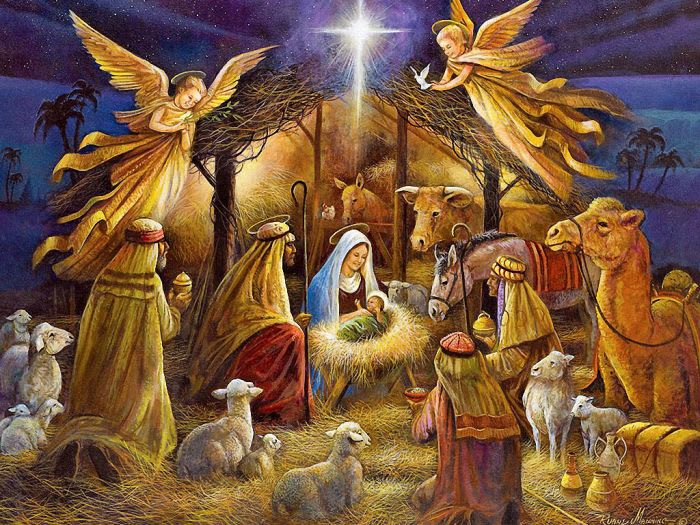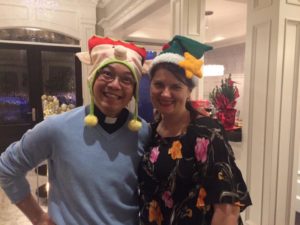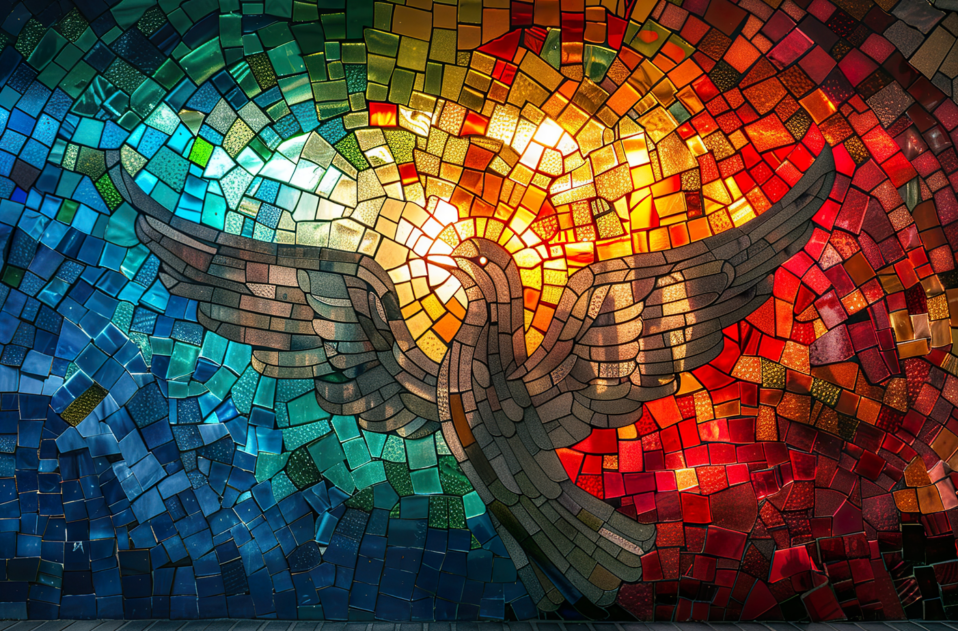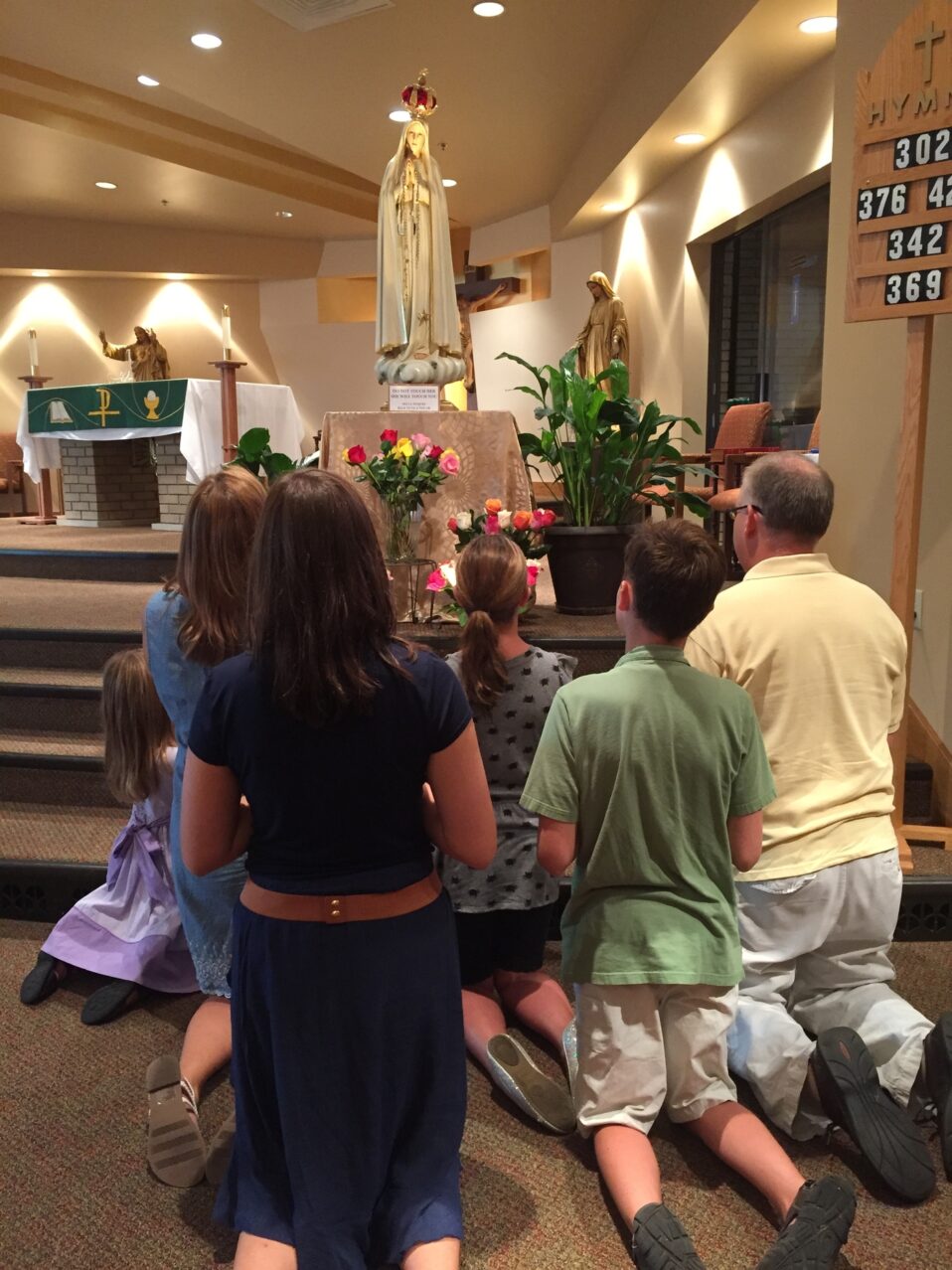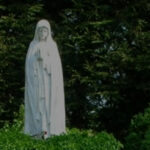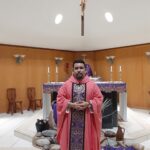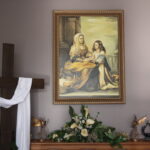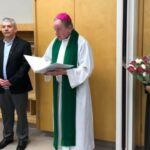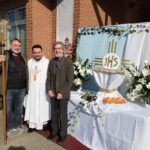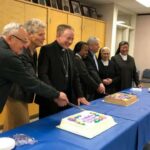By Fr. Hien Nguyen
2. Vocation Culture in the Family
2.2 Prayer
The only way our children can hear God’s call is to know how to listen to God and to talk to God, or simply to pray. How can we expect our children to hear when they are “deaf” and to talk when they are “dumb”? We need to teach them to communicate with God, and an effective way is to gather as a family and pray. There are families that get together every evening, light a candle, say the Confiteor, the Creed, a decade of the Rosary, and conclude with a period of silence. The whole duration only takes about seven minutes which will not be a burden for the young (babies) and prolong the interest for the old (teenagers). The practice of family praying together will develop a habit for the children to pray and learn how to pray even on their own.
The family can also help the members to appreciate and enter more deeply into the Sacred Words of God through sharing stories particularly of the Bible and the Saints. Stories telling are an effective way to communicate specially to the young. Their natural curiosity and imagination absorb what being read or told. Pictures are also a good method to share with them about the faith that can express thousand of words and imprint in them long-lasting memories. I still remember not only stories about my patron saint that my parents told me but also the patron saints of my siblings that I also heard. Every feast-day, we celebrate our patron saints like a birthday celebration with a special meal, a cake, and Mass. Currently, we replaced birthdays with parties and gifts and teaching our children to indulge and consume. I still remember the exciting Bible story of Joseph and how he rescued his brothers and family; Moses’ escape and walk through the Red Sea; the miracle of water being changed into wine; the multiplication of bread and fish; Peter walking on the water, etc. Parents should encourage the children to read by making Catholic Bibles available to them. Parents must provide books and magazines that exemplify the lives of the saints who can inspire the children to follow their footsteps and make them their role models. There are Catholic Bibles trivia games that the family can spend time together at recreation for a fun learning experience.
Another way to help the children immerse in Sacred Scripture is to have the Breaking of the Word. Parents can simply spend fifteen minutes in one of the evenings during the week and instead of having evening prayer together use the Sunday Mass Gospel to have the family listen. Afterwards, allow each member to share their life experience in the light of the Gospel. In this way, the children are prepared and look forward to the Sunday Mass. This is an opportunity to help the children to understand better about the teaching of the Church through the Word and its application in life
Symbolism also helps instill in the family members the significant meaning it represents. Just like sacrament and sacramental are visible signs of the hidden realities that give grace. It is important then to have in the home these sacred signs. There should be a place in the home where a small altar or shrine dedicated to be a worshipping place, a prayer center (a focal point) where family can get together to pray each day. A cross, a statue, a painting that reminds us of the Lord, our Mother, and the saints are strongly encouraged. Each room should have a cross and other helpful sacramentals such as a blessed palm, a rosary, an icon, a bible, etc. These will remind us of the significant meanings that inspire us to live our faith. I remember one of my younger brother favourite things was to light the candle on the home shrine before family prayer and blow it out afterward. Another beautiful sign of sacramental is a cross-chain, a scapular, a religious medal that one can wear on the body to be inspired. We need to bring back sacred signs into our family home and life. It is unfortunate to see that the religious symbols in the home have been replaced by the contemporary signs of prosperity and commercialism: wide, flat screened Televisions, computers, immodest arts, etc.





